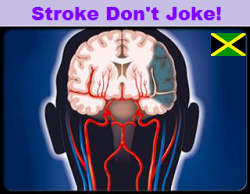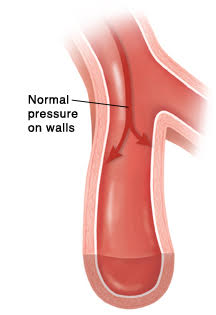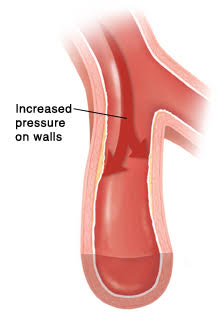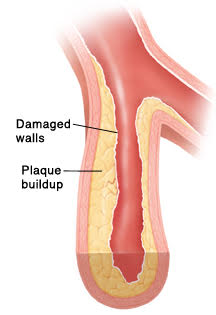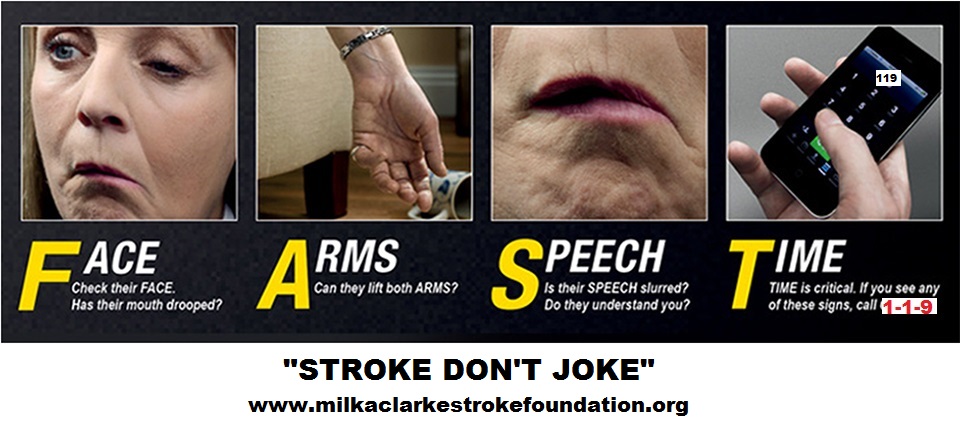What Is High Blood Pressure?
Controlling High Blood Pressure
High blood pressure (hypertension) is called the silent killer. This is because many people who have it don’t know it. High blood pressure is 140/90 or higher. Know your blood pressure and remember to check it regularly. Doing so can save your life. Here are some things you can do to help control your blood pressure.
High blood pressure (hypertension) is called the silent killer. This is because many people who have it don’t know it. High blood pressure is 140/90 or higher. Know your blood pressure and remember to check it regularly. Doing so can save your life. Here are some things you can do to help control your blood pressure.

High blood pressure (also called hypertension) is known as the “silent killer.” This is because most of the time it doesn’t cause symptoms. In fact, many people don’t know they have it until other problems develop. In most cases, high blood pressure can’t be cured. It’s a disease that requires lifelong treatment. The good news is that it CAN be managed.
Understanding blood pressure
The circulatory system is made up of the heart and blood vessels that carry blood through the body. Your heart is the pump for this system. With each heartbeat (contraction), the heart sends blood out through large blood vessels called arteries. Blood pressure is a measure of how hard the moving blood pushes against the walls of the arteries.
High blood pressure can harm your health
High blood pressure makes the heart work harder to pump blood. Frequent high blood pressure can also cause changes in the artery walls. The walls thicken and become rough, which leads to a buildup of plaque (a fatty material). This can damage the arteries. It can also reduce blood flow through the artery. If blood pressure is not controlled, all these effects can lead to serious health problems. These include heart disease, heart attack (also known as acute myocardial infarction, or AMI), stroke, kidney disease, and blindness.
Measuring blood pressure
An example of a blood pressure measurement is 120/70 (120 over 70). The top number is the pressure of blood against the artery walls during a heartbeat (systolic). The bottom number is the pressure of blood against artery walls between heartbeats (diastolic). Talk with your health care provider to find out what your blood pressure goals should be.
Controlling blood pressure
If your blood pressure is too high, work with your doctor on a plan for lowering it. Below are steps you can take that will help lower your blood pressure.
Facts about high blood pressure
· Feeling OK does not mean that blood pressure is under control. Likewise, feeling bad doesn’t mean it’s out of control. The only way to know for sure is to check your pressure regularly.
· Medication is only one part of controlling high blood pressure. You also need to manage your weight, get regular exercise, and adjust your eating habits.
· High blood pressure is usually a lifelong problem. But it can be controlled with healthy lifestyle changes and medication.
· Hypertension is not the same as stress. Although stress may be a factor in high blood pressure, it’s only one part of the story.
· Blood pressure medications need to be taken every day. Stopping suddenly may cause a dangerous increase in pressure.
If lifestyle changes aren’t enough, your health care provider may prescribe high blood pressure medicine. Take all medications as prescribed.
Understanding blood pressure
The circulatory system is made up of the heart and blood vessels that carry blood through the body. Your heart is the pump for this system. With each heartbeat (contraction), the heart sends blood out through large blood vessels called arteries. Blood pressure is a measure of how hard the moving blood pushes against the walls of the arteries.
High blood pressure can harm your health
High blood pressure makes the heart work harder to pump blood. Frequent high blood pressure can also cause changes in the artery walls. The walls thicken and become rough, which leads to a buildup of plaque (a fatty material). This can damage the arteries. It can also reduce blood flow through the artery. If blood pressure is not controlled, all these effects can lead to serious health problems. These include heart disease, heart attack (also known as acute myocardial infarction, or AMI), stroke, kidney disease, and blindness.
Measuring blood pressure
An example of a blood pressure measurement is 120/70 (120 over 70). The top number is the pressure of blood against the artery walls during a heartbeat (systolic). The bottom number is the pressure of blood against artery walls between heartbeats (diastolic). Talk with your health care provider to find out what your blood pressure goals should be.
Controlling blood pressure
If your blood pressure is too high, work with your doctor on a plan for lowering it. Below are steps you can take that will help lower your blood pressure.
- Choose heart-healthy foods. Eating healthier meals helps you control your blood pressure. Ask your doctor about the DASH eating plan. This plan helps reduce blood pressure by limiting the amount of sodium (salt) you have in your diet.
- Maintain a healthy weight. Being overweight makes you more likely to have high blood pressure. Losing excess weight helps lower blood pressure.
- Exercise regularly. Daily exercise helps your heart and blood vessels work better and stay healthier. It can help lower your blood pressure.
- Stop smoking. Smoking increases blood pressure and damages blood vessels.
- Limit alcohol. Drinking too much alcohol can raise blood pressure. Men should have no more than 2 drinks a day. Women should have no more than 1. (A drink is equal to 1 beer, or a small glass of wine, or a shot of liquor.)
- Control stress. Stress makes your heart work harder and beat faster. Controlling stress helps you control your blood pressure.
Facts about high blood pressure
· Feeling OK does not mean that blood pressure is under control. Likewise, feeling bad doesn’t mean it’s out of control. The only way to know for sure is to check your pressure regularly.
· Medication is only one part of controlling high blood pressure. You also need to manage your weight, get regular exercise, and adjust your eating habits.
· High blood pressure is usually a lifelong problem. But it can be controlled with healthy lifestyle changes and medication.
· Hypertension is not the same as stress. Although stress may be a factor in high blood pressure, it’s only one part of the story.
· Blood pressure medications need to be taken every day. Stopping suddenly may cause a dangerous increase in pressure.
- Choose heart-healthy foods
- Select low-salt, low-fat foods.
- Limit canned, dried, cured, packaged, and fast foods. These can contain a lot of salt.
- Eat 8 to 10 servings of fruits and vegetables every day.
- Choose lean meats, fish, or chicken.
- Eat whole-grain pasta, brown rice, and beans.
- Eat 2 to 3 servings of low-fat or fat-free dairy products
- Ask your doctor about the DASH eating plan. This plan helps reduce blood pressure.
- Ask your health care provider how many calories to eat a day. Then stick to that number.
- Ask your health care provider what weight range is healthiest for you. If you are overweight, a weight loss of only 3% to 5% of your body weight can help lower blood pressure.
- Limit snacks and sweets.
- Get regular exercise.
- Choose activities you enjoy. Find ones you can do with friends or family.
- Park farther away from building entrances.
- Use stairs instead of the elevator.
- When you can, walk or bike instead of driving.
- Rake leaves, garden, or do household repairs.
- Be active at a moderate to vigorous level of physical activity for at least 40 minutes for a minimum of 3 to 4 days a week.
- Make time to relax and enjoy life. Find time to laugh.
- Visit with family and friends, and keep up with hobbies.
- Men should have no more than 2 drinks per day.
- Women should have no more than 1 drink per day.
- Talk with your health care provider about quitting smoking. Smoking increases your risk for heart disease and stroke. Ask about local or community programs that can help.
If lifestyle changes aren’t enough, your health care provider may prescribe high blood pressure medicine. Take all medications as prescribed.
